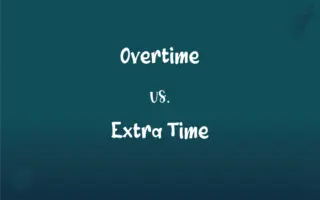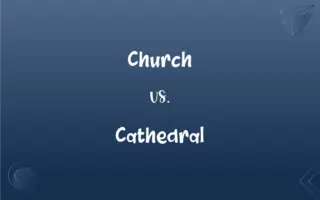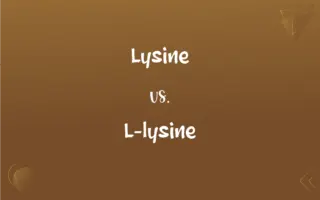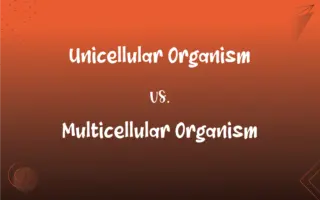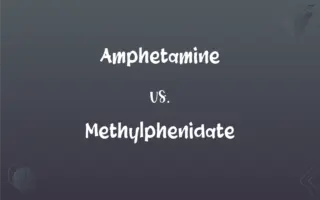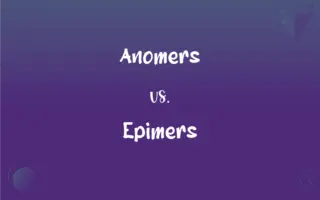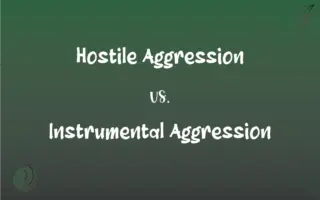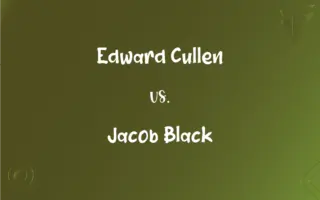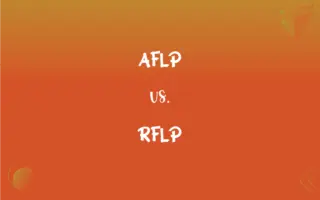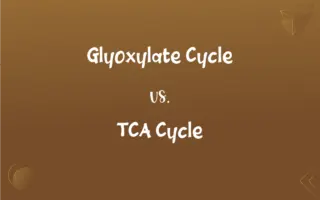Trust vs. Foundation: What's the Difference?
Edited by Aimie Carlson || By Janet White || Updated on October 2, 2023
A trust is a legal entity where property is held by one party for the benefit of another, while a foundation is a legal entity with its own purposed assets to achieve a specified goal, often charitable.

Key Differences
Trusts are legal arrangements allowing trustees to hold assets for beneficiaries, generally focusing on estate planning, wealth management, or asset protection. In contrast, foundations are legal entities typically established for charitable, educational, or philanthropic purposes, using its assets to achieve specific goals and is often self-funded.
Trusts operate on the basis of a trust deed, which outlines the terms and conditions for managing the trust’s assets and distributing benefits, enabling a flexible structure. Foundations, however, are usually governed by a board and are more rigid and formal in structure, focusing on long-term goals and having a clear mission and objective.
In terms of transparency, trusts often afford a degree of privacy, especially in managing and transferring wealth, as the details of the trust arrangement may not be public. Conversely, foundations are subject to more public scrutiny and regulations due to their charitable nature, requiring clear documentation of activities and finances.
Financial control in a trust is in the hands of the trustees who manage the assets for the benefit of the beneficiaries, allowing the trust to distribute income. Foundations, on the other hand, are generally non-profit entities, using their income to pursue their mission and often re-investing it to sustain their activities.
Summarizing, while trusts are flexible entities focusing on holding assets for others, foundations are mission-driven organizations with their own assets working towards achieving specified objectives, usually of a charitable nature.
ADVERTISEMENT
Comparison Chart
Purpose
Manages assets for beneficiaries.
Achieves specified, often charitable goals.
Structure
Flexible, governed by a trust deed.
Rigid, managed by a board.
Transparency
Often private.
Subject to public scrutiny and regulation.
Financial Control
Trustees control and distribute income.
Income is reinvested to sustain mission.
Duration
Can be temporary or perpetual.
Typically long-term or perpetual.
ADVERTISEMENT
Trust and Foundation Definitions
Trust
Reliance on something in the future; hope
We have trust that the future will be better.
Foundation
An entity established to accomplish a charitable, educational, or philanthropic goal.
The foundation contributes to various social causes to uplift the underprivileged sections of society.
Trust
A fiduciary relationship involving a trustee managing assets for beneficiaries.
The trust was established to manage the inheritance for the minor beneficiaries until they reach a certain age.
Foundation
A legal structure with its assets dedicated to fulfilling its mission.
The arts foundation promotes cultural endeavors and supports artists and their projects.
Trust
A legal entity created to hold assets with specified conditions.
The family set up a trust to protect their estate and ensure the continuity of their wealth.
Foundation
A legal organization with a specified objective, using its assets for a defined purpose.
The health foundation is dedicated to supporting medical research and promoting healthcare awareness.
Trust
A relationship wherein one party holds property for the benefit of another.
The trust ensures that the beneficiary receives the income generated from the assets held by the trustee.
Foundation
A non-profit institution, focusing on achieving long-term missions.
The educational foundation strives to enhance learning opportunities for students from diverse backgrounds.
Trust
Firm belief in the integrity, ability, or character of a person or thing; confidence or reliance
Trying to gain our clients' trust.
Taking it on trust that our friend is telling the truth.
Foundation
An organization established with endowed funds for a specific cause.
The environmental foundation uses its funds to advocate for conservation and sustainable practices.
Trust
The condition and resulting obligation of having confidence placed in one
Violated a public trust.
Foundation
The act of founding, especially the establishment of an institution with provisions for future maintenance.
Trust
One in which confidence is placed.
Foundation
(Architecture) A wall or other structure, as of concrete or masonry, usually extending below ground level and forming the base upon which a building rests.
Trust
Custody; care
Left her papers in my trust during her illness.
Foundation
Something that gives rise to or supports something else.
Trust
Something committed into the care of another; a charge
Violated a public trust.
Foundation
The act of founding, fixing, establishing, or beginning to erect.
The foundation of his institute has been wrought with difficulty.
Trust
Reliance on the intention and ability of a purchaser to pay in the future; credit
Bought the supplies on trust from a local dealer.
Foundation
That upon which anything is founded; that on which anything stands, and by which it is supported; the lowest and supporting layer of a superstructure; underbuilding.
Trust
A legal relationship in which one party holds a title to property while another party has the entitlement to the beneficial use of that property.
Foundation
(figurative) The result of the work to begin something; that which stabilizes and allows an enterprise or system to develop.
Trust
The confidence reposed in a trustee when giving the trustee legal title to property to administer for another, together with the trustee's obligation regarding that property and the beneficiary.
Foundation
(card games) In solitaire or patience games, one of the piles of cards that the player attempts to build, usually holding all cards of a suit in ascending order.
Trust
The property so held.
Foundation
(architecture) The lowest and supporting part or member of a wall, including the base course and footing courses; in a frame house, the whole substructure of masonry.
The foundations of this construction have been laid out.
Trust
An institution or organization directed by trustees
A charitable trust.
Foundation
A donation or legacy appropriated to support a charitable institution, and constituting a permanent fund; endowment.
Trust
A combination of firms or corporations for the purpose of reducing competition and controlling prices throughout a business or industry.
Foundation
That which is founded, or established by endowment; an endowed institution or charity.
The Wikimedia Foundation, Inc. is the parent organization of the Wiktionary collaborative project.
Trust
To have or place confidence in; depend on
Only trusted his friends.
Did not trust the strength of the thin rope.
Could not be trusted to oversee so much money.
Foundation
(cosmetics) Cosmetic cream roughly skin-colored, designed to make the face appear uniform in color and texture.
Trust
To have confidence in allowing (someone) to use, know, or look after something
Can I trust you with a secret?.
Foundation
A basis for social bodies or intellectual disciplines.
Trust
To expect with assurance; assume
I trust that you will be on time.
Foundation
The act of founding, fixing, establishing, or beginning to erect.
Trust
To give credence to; believe
I trust what you say.
Foundation
That upon which anything is founded; that on which anything stands, and by which it is supported; the lowest and supporting layer of a superstructure; groundwork; basis.
Behold, I lay in Zion, for a foundation, a stone . . . a precious corner stone, a sure foundation.
The foundation of a free common wealth.
Trust
To place in the care of another person or in a situation deemed safe; entrust
"the unfortunate souls who trusted their retirement savings to the stock" (Bill Barnhart).
Foundation
A donation or legacy appropriated to support a charitable institution, and constituting a permanent fund; endowment.
He was entered on the foundation of Westminster.
Trust
To extend credit to.
Foundation
That which is founded, or established by endowment; an endowed institution or charity; as, the Ford Foundation.
Against the canon laws of our foundation.
Trust
To have or place reliance; depend
We can only trust in our guide's knowledge of the terrain.
Foundation
The basis on which something is grounded;
There is little foundation for his objections
Trust
To be confident; hope.
Foundation
An institution supported by an endowment
Trust
Confidence in or reliance on some person or quality.
He needs to regain her trust if he is ever going to win her back.
To lose trust in someone
Build up trust
A relationship built on mutual trust
Foundation
The fundamental assumptions from which something is begun or developed or calculated or explained;
The whole argument rested on a basis of conjecture
Trust
Dependence upon something in the future; hope.
Foundation
Lowest support of a structure;
It was built on a base of solid rock
He stood at the foot of the tower
Trust
Confidence in the future payment for goods or services supplied; credit.
I was out of cash, but the landlady let me have it on trust.
Foundation
Education or instruction in the fundamentals of a field of knowledge;
He lacks the foundation necessary for advanced study
A good grounding in mathematics
Trust
That which is committed or entrusted; something received in confidence; a charge.
Foundation
A woman's undergarment worn to give shape to the contours of the body
Trust
That upon which confidence is reposed; ground of reliance; hope.
Foundation
The act of starting something for the first time; introducing something new;
She looked forward to her initiation as an adult
The foundation of a new scientific society
He regards the fork as a modern introduction
Trust
(rare) Trustworthiness, reliability.
Trust
The condition or obligation of one to whom anything is confided; responsible charge or office.
Trust
(legal) The confidence vested in a person who has legal ownership of a property to manage for the benefit of another.
I put the house into my sister's trust.
Trust
(legal) An arrangement whereby property or money is given to be held by a third party (a trustee), on the basis that it will be managed for the benefit of, or eventually transferred to, a stated beneficiary; for example, money to be given to a child when he or she reaches adulthood.
Trust
A group of businessmen or traders organised for mutual benefit to produce and distribute specific commodities or services, and managed by a central body of trustees.
Trust
(computing) Affirmation of the access rights of a user of a computer system.
Trust
(transitive) To place confidence in, to rely on, to confide in.
We cannot trust anyone who deceives us.
Trust
To have faith in; to rely on for continuing support or aid.
Trust
(transitive) To give credence to; to believe; to credit.
Trust
(transitive) To hope confidently; to believe (usually with a phrase or infinitive clause as the object)
I trust you have cleaned your room?
Trust
(transitive) to show confidence in a person by entrusting them with something.
Trust
(transitive) To commit, as to one's care; to entrust.
Trust
(transitive) To give credit to; to sell to upon credit, or in confidence of future payment.
Merchants and manufacturers trust their customers annually with goods.
Trust
To rely on (something), as though having trust (on it).
To trust to luck
Having lost the book, he had to trust to his memory for further details.
Trust
To risk; to venture confidently.
Trust
(intransitive) To have trust; to be credulous; to be won to confidence; to confide.
Trust
To sell or deliver anything in reliance upon a promise of payment; to give credit.
Trust
(obsolete) Secure, safe.
Trust
(obsolete) Faithful, dependable.
Trust
(legal) of or relating to a trust.
Trust
Assured resting of the mind on the integrity, veracity, justice, friendship, or other sound principle, of another person; confidence; reliance; reliance.
Most take things upon trust.
Trust
Credit given; especially, delivery of property or merchandise in reliance upon future payment; exchange without immediate receipt of an equivalent; as, to sell or buy goods on trust.
Trust
Assured anticipation; dependence upon something future or contingent, as if present or actual; hope; belief.
His trust was with the Eternal to be deemedEqual in strength.
Trust
That which is committed or intrusted to one; something received in confidence; charge; deposit.
Trust
The condition or obligation of one to whom anything is confided; responsible charge or office.
[I] serve him truly that will put me in trust.
Reward them well, if they observe their trust.
Trust
That upon which confidence is reposed; ground of reliance; hope.
O Lord God, thou art my trust from my youth.
Trust
An estate devised or granted in confidence that the devisee or grantee shall convey it, or dispose of the profits, at the will, or for the benefit, of another; an estate held for the use of another; a confidence respecting property reposed in one person, who is termed the trustee, for the benefit of another, who is called the cestui que trust.
Trust
An equitable right or interest in property distinct from the legal ownership thereof; a use (as it existed before the Statute of Uses); also, a property interest held by one person for the benefit of another. Trusts are active, or special, express, implied, constructive, etc. In a passive trust the trustee simply has title to the trust property, while its control and management are in the beneficiary.
Trust
A business organization or combination consisting of a number of firms or corporations operating, and often united, under an agreement creating a trust (in sense 1), esp. one formed mainly for the purpose of regulating the supply and price of commodities, etc.; often, opprobriously, a combination formed for the purpose of controlling or monopolizing a trade, industry, or business, by doing acts in restraint or trade; as, a sugar trust. A trust may take the form of a corporation or of a body of persons or corporations acting together by mutual arrangement, as under a contract or a so-called gentlemen's agreement. When it consists of corporations it may be effected by putting a majority of their stock either in the hands of a board of trustees (whence the name trust for the combination) or by transferring a majority to a holding company. The advantages of a trust are partly due to the economies made possible in carrying on a large business, as well as the doing away with competition. In the United States severe statutes against trusts have been passed by the Federal government and in many States, with elaborate statutory definitions.
Trust
Held in trust; as, trust property; trustmoney.
Trust
To place confidence in; to rely on, to confide, or repose faith, in; as, we can not trust those who have deceived us.
I will never trust his word after.
He that trusts every one without reserve will at last be deceived.
Trust
To give credence to; to believe; to credit.
Trust me, you look well.
Trust
To hope confidently; to believe; - usually with a phrase or infinitive clause as the object.
I trust to come unto you, and speak face to face.
We trustwe have a good conscience.
Trust
To show confidence in a person by intrusting (him) with something.
Whom, with your power and fortune, sir, you trust,Now to suspect is vain.
Trust
To commit, as to one's care; to intrust.
Merchants were not willing to trust precious cargoes to any custody but that of a man-of-war.
Trust
To give credit to; to sell to upon credit, or in confidence of future payment; as, merchants and manufacturers trust their customers annually with goods.
Trust
To risk; to venture confidently.
[Beguiled] by theeto trust thee from my side.
Trust
To have trust; to be credulous; to be won to confidence; to confide.
More to know could not be more to trust.
Trust
To be confident, as of something future; to hope.
I will trust and not be afraid.
Trust
To sell or deliver anything in reliance upon a promise of payment; to give credit.
It is happier sometimes to be cheated than not to trust.
Her widening streets on new foundations trust.
They trusted unto the liers in wait.
Trust
Something (as property) held by one party (the trustee) for the benefit of another (the beneficiary);
He is the beneficiary of a generous trust set up by his father
Trust
Certainty based on past experience;
He wrote the paper with considerable reliance on the work of other scientists
He put more trust in his own two legs than in the gun
Trust
The trait of trusting; of believing in the honesty and reliability of others;
The experience destroyed his trust and personal dignity
Trust
A consortium of independent organizations formed to limit competition by controlling the production and distribution of a product or service;
They set up the trust in the hope of gaining a monopoly
Trust
Complete confidence in a person or plan etc;
He cherished the faith of a good woman
The doctor-patient relationship is based on trust
Trust
A trustful relationship;
He took me into his confidence
He betrayed their trust
Trust
Have confidence or faith in;
We can trust in God
Rely on your friends
Bank on your good education
I swear by my grandmother's recipes
Trust
Allow without fear
Trust
Be confident about something;
I believe that he will come back from the war
Trust
Expect and wish;
I trust you will behave better from now on
I hope she understands that she cannot expect a raise
Trust
Confer a trust upon;
The messenger was entrusted with the general's secret
I commit my soul to God
Trust
Extend credit to
Trust
A financial arrangement providing a means of asset protection and wealth management.
He placed his assets in a trust to safeguard them from any unforeseen financial circumstances.
Trust
A structure for segregating assets for specified purposes.
The charitable trust was created to fund educational initiatives for underprivileged children.
FAQs
Can a trust fund charitable activities?
Yes, charitable trusts can be established to fund charitable activities.
Can a foundation have beneficiaries?
Foundations don’t have beneficiaries in the way trusts do; they serve their mission or purpose.
Do foundations have trustees?
Foundations are usually governed by a board, not trustees.
Can a trust be established for any purpose?
Trusts can be established for various purposes, but they must be legal and clear.
Can foundations be temporary?
Foundations are typically established with a long-term or perpetual perspective.
Are all trusts and foundations non-profit?
Foundations are typically non-profit, while trusts can be either non-profit or for-profit.
Can trusts have a specific duration?
Trusts can have a specified duration or exist in perpetuity, depending on the trust deed.
Is a trust deed mandatory for trusts?
Typically, a trust deed is essential for outlining the terms and conditions of the trust.
Are foundations subject to audits?
Foundations are usually subject to audits due to their charitable nature and public scrutiny.
Are foundations and trusts taxed differently?
The taxation of foundations and trusts depends on their structure, purpose, and activities, and they may be taxed differently.
Can trusts and foundations be international?
Both trusts and foundations can operate internationally, depending on their establishment and objectives.
Who controls the assets in a trust?
Trustees control the assets in a trust, managing them for the beneficiaries.
Can a trust operate as a foundation?
While trusts and foundations have distinct structures and purposes, some trusts can operate similarly to foundations in fulfilling charitable objectives.
Can a foundation be dissolved?
Foundations can be dissolved, typically requiring a legal process and distribution of remaining assets in line with the foundation’s purpose.
Can a foundation own assets?
Foundations own assets which are dedicated to fulfilling their mission.
About Author
Written by
Janet WhiteJanet White has been an esteemed writer and blogger for Difference Wiki. Holding a Master's degree in Science and Medical Journalism from the prestigious Boston University, she has consistently demonstrated her expertise and passion for her field. When she's not immersed in her work, Janet relishes her time exercising, delving into a good book, and cherishing moments with friends and family.
Edited by
Aimie CarlsonAimie Carlson, holding a master's degree in English literature, is a fervent English language enthusiast. She lends her writing talents to Difference Wiki, a prominent website that specializes in comparisons, offering readers insightful analyses that both captivate and inform.
